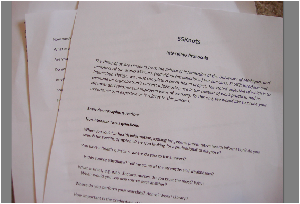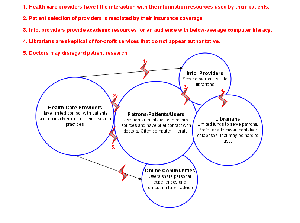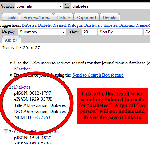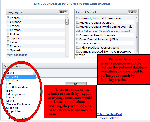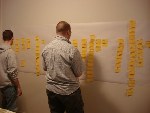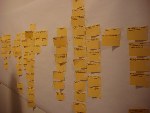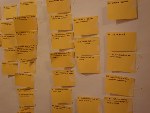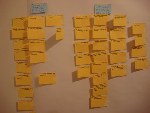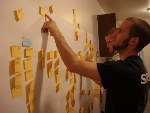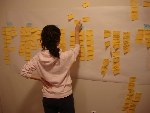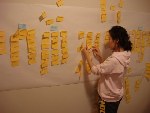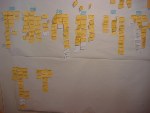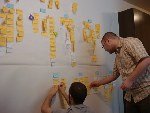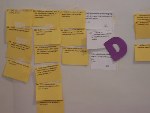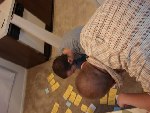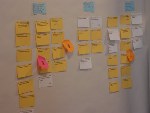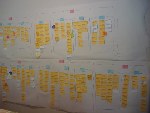Contextual Inquiry
InterviewsWe performed 8 interviews focused on two different kinds of users. We interviewed six end users living in Ann Arbor who have searched health or wellness information online, and two librarians who work in the Ann Arbor area. We concluded that we needed to limit our interviews to potential users. We focused on new residents of the area, parents with young children, and people with long term illnesses who are continuously interested in health and wellness information. We compiled interview protocols and questions, though the list of questions evolved from interview to interview. Most of questions were related to users' health information seeking behavior and their habits in using the library and online. We were also interested in how they found and selected their health care providers. In addition to the interviews, we referred to research on health librarians previously conducted by Gale. All of the interviews were conducted face-to-face from September 27th to October 3rd in the users’ workplace or home. The average time for conducting interview was between 30 minutes and an hour for each person. Interpretation ProcessWe held interpretation sessions after conducting the interviews at Silhee’s apartment. After the interpretation, we compiled roughly 300 affinity notes for the affinity diagram. Affinity DiagramFor the affinity diagram, we gathered at the Silhee’s apartment. During three meetings, we grouped notes, added blue and pink notes for common themes between them, and discovered many breakdowns and design ideas. We finally finished the affinity diagram on Oct. 5th. ModelsWe constructed a culture model representing information seekers (patrons, patients, users) and the service providers--doctors, librarians, database providers, and online communities--that serve them. We identified several major breakdowns. Information consumers are often computer illiterate and demand simple interfaces and resources from information providers, but librarians are reluctant to purchase resources that are limited in functionality and do not appear authoritative. Also, health care providers have limited involvement in the information gathering practices and services utilized by their patients. After our interviews, we could better assess the alternative medical information databases available to consumers. A lot of databases are designed to serve "expert searchers" and often have very cryptic search methodolgy. Databases and sites designed to serve consumers have much fewer navigation criteria and produce summarized results. ConclusionsEnd users are typically searching for a particular set of symptoms, and information about a specific diagnosis or prescription. End users nearly never want journal articles or go to libraries. They prefer convenience and searching at home despite knowing doctors are more reliable and more authoritative sources are available. Librarians and end users don't agree on what makes a source authoritative. All of our end users struggled to describe how they determine whether a source is credible. A few identified professional degrees and affiliations as providing credibility, "anyone can claim to be a doctor on the internet." In order to get around these concerns, many users try to find multiple sources. End users also tend to value the personal experience of others in addition to professional expertise. Most end users think that if they see a particular diagnosis are advice repeatedly on the web it is credible while librarians rely on the evidence pyramid to distinguish credibility. Librarians and end users want 2 distinct interfaces. Librarians want "expert search" with a lot of functionality while end users want Google. Design Ideas In Affinity Notes
|

